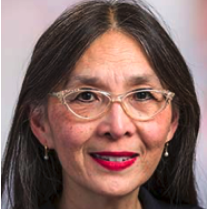Effie W.
Petersdorf
M.D.

(206) 667-5244
Fred Hutch Cancer Center
1100 Fairview Ave. N, D4-100
Seattle, WA 98109
Photo: Fred Hutch
Education, Training, Board Certifications
- M.D., McGill University, Canada
- Residency, UW
- Fellowship, UW
- Medical Oncology, American Board of Internal Medicine
- Internal Medicine, American Board of Internal Medicine
Clinical Expertise
- Hematopoietic stem cell transplantation
- HLA typing
- Acute Myelogenous Leukemia
Affiliations
Publications
Research and/or clinical interests
Dr. Effie Wang Petersdorf is an oncologist who studies how genetic factors influence the success of stem cell transplants. She pioneered molecular methods to compare differences between transplant donors and recipients in a key set of genes known as human leukocyte antigen, or HLA, genes. Mismatches in these genes, which play a central role in the immune response, raise the risk of graft-vs.-host disease (GVHD), a potentially life-threatening complication in which newly transplanted cells attack the patient’s body. Dr. Petersdorf has shown that precise and complete HLA typing, and matching of both donor and recipient, can make transplants safer. Transplants between imperfectly matched donors and recipients can also succeed, indicating that not all genetic differences have the same effects. Dr. Petersdorf spearheaded the formation of the International Histocompatibility Working Group, a worldwide collaboration among donor registries, transplant centers and HLA laboratories. She also looks beyond HLA typing to find new genes that may influence transplant success. She recently identified two new sites where DNA mismatches are important: a mismatch at one location increases GVHD risk, while a mismatch at the other enhances patient survival. Plans to offer typing of these new sites to future Hutch patients and donors are underway.



